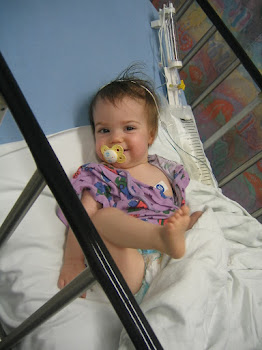Lily will turn 16 in March. She's only known life as child with cancer, a child who survived cancer and a child who battles long term side effects of cancer and treatment.
We are the lucky ones, all-in-all. Lily is tumor free. Lily is thriving. And despite the terrifying shunt failures and other challenges, Lily truly has a blessed, healthy life.
When she was diagnosed, I worked for a charity focused on the alleviation of refractive error blindness in poor countries. I was tasked with telling some of those stories--the stories of children who were blind--just because they did not have a pair of glasses. The stories of blind adults unable to work and unable to feed their families.
I think about those stories a lot. And I think about other families in poor countries who may have faced a cancer diagnosis like we did. Did their babies die? Were their babies ever diagnosed? Did they ever get treatment? If they lived, did they ever receive physical therapy services? Where are they now?
The answers to the questions above: they probably died. They probably were not diagnosed. They probably were not treated. If they lived, they probably did not access services. And where are they--I don't know, but I know they are probably not sitting in advanced geometry classes or rowing on their high school crew team.
And it is not because we are better or smarter. It is the luck of being born here and living here and having Children's Hospital of Philadelphia within 10 miles.
These children in poorer countries die because of the inequity that exists in the treatment of childhood cancer. 80% of children diagnosed with cancer in wealthy countries will be alive 5 years after diagnosis. In poorer countries, the 5 year survival rate is below 20%. While the global burden of childhood cancer is estimated to be 400,000 new diagnoses a year; it is universally agreed that this number is low. There is not a universal global childhood cancer registry. Not all countries report. The United States does not even have an efficient reporting system for cancer diagnoses.
There are children who die from cancer that are not even counted.
To me, this is the most heartbreaking realization because these children count. The lives they could live and the contributions and love and joy they could give to our world counts. Children should not die because of a lack of access to treatments and expertise.
I would never trade our luck and our access for anything in the world. My Lily is my heart--my girl--our everything. But, I cannot ever forget how important it is to fight for cures for all children; because cures are no good if you cannot reach up and grab them.
Now for my shameless call-to-action, for World Cancer Day, today, February 4. Please consider making a donation to Alex's Lemonade Stand Foundation. Research works because it is collaborative and global--and ALSF also works with researchers who are working hard to improve access to treatments by working toward multi-site clinical trials and understanding the needs of underserved populations. In our own country, there are families who are forced to make treatment decisions based on their ability to travel for treatment--the ALSF Travel for Care fund supports those families, getting their kids to treatment. You can make a monthly donation (of just $5) providing sustainable support via the One Cup at a Time Club!


Comments
Post a Comment